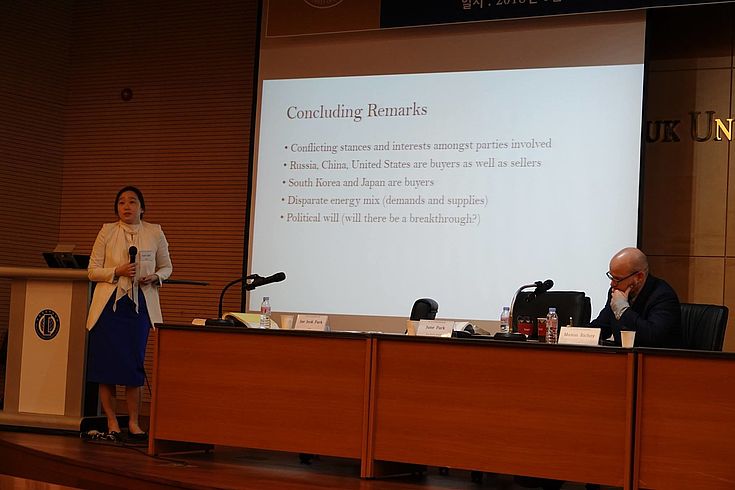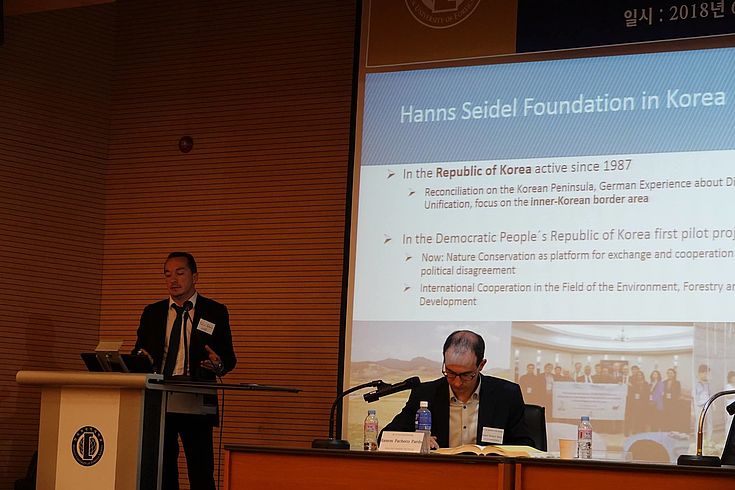International Conference
Application of European Experiences to the Korean Peninsula
June Park, Seoul National University
HSS
In the first session of the 12th Joint Conference on European Studies in Korea’s International Panel, the dynamics of North Korea’s denuclearization and the Korean peacebuilding process were discussed. Mason Richey (Hankuk University of Foreign Studies) spoke about the changing regional dynamics of East Asia with the progression of events in the Korean peninsula under the title of “North Korea’s Denuclearization and US-DPRK Rapprochement: Opportunities, Constraints, and Challenges”. He highlighted China’s rising geopolitical role and hinted the potential failure of CVID in North Korea, as suggestible from President Trump’s brinksmanship of cancelling the US-North Korean talks.
Other speakers such as June Park (Seoul National University) elaborated upon the “Sino-South Korea Cooperation and Competition in the Context of Economic Engagement with North Korea”, detailing the relevance of the growth of energy market to the peace building process in the Korean peninsula with the increasing role of China. She said that the international community ought to resolve issues such as figuring out the main investors willing to support the development of energy resources in North Korea and determining how North Korea will fit into the expansion of Asia’s Super Grid.
Felix Glenk, DPRK Project Manager of HSF Korea
HSS
In the second session of the International Panel, the prospect of reconciliation was more linked to the European experiences. Ramon Pacheco Pardo (Korea Chair Programme, IES-VUB; KCL), for example, highlighted the Northeast Asia Plus Community of Responsibility’s potential role of fostering cooperation and regional security in East Asia. He also shed light on Europe’s (the EU in particular) possibility of sharing knowledge and providing functional cooperation in support of the NAPCR.
Felix Glenk, Project Manager of DPR Korea at HSF Korea, presented about “The Prospect of North Korea’s Reform and Open-Door: Europe’s Role” during the International Panel session. Specifically, Mr. Glenk provided an overview of the activities that HSF Korea has been promoting and answered questions regarding his fieldwork in Pyongyang. He also emphasized the need to interpret North Korea as a partner, not a political opponent, to further the country’s environmental protection and development of resources, referring to DPRK’s partaking in the Ramsar Convention this year.


